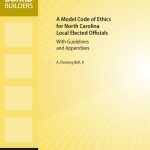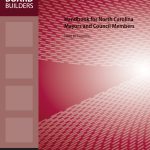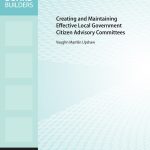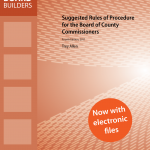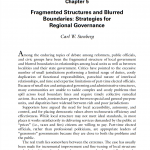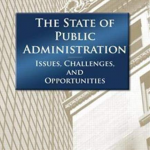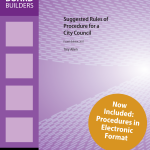
Now in its fourth edition, this book provides city councils with model procedural rules for their meetings. The model rules cover, among many other topics, the organizational meeting, pertinent requirements of the open meetings law, the role of the presiding officer, agenda preparation and approval, substantive and procedural motions, voting rules, ordinance adoption, public hearings, and public comment periods. Legal and practical issues are analyzed in the comments that follow each rule.
The fourth edition differs from prior editions in important ways. It incorporates significant statutory changes that have occurred since a revised version of the third edition was published in 2007. Both the rules themselves and the comments have undergone extensive modifications in an effort to make the book even more useful to municipal governing boards. New appendixes include tables showing the numbers of members necessary to establish a quorum and the number of votes required to adopt an ordinance or approve a contract.
This book is a must for council members, city managers and administrators, city clerks, and city attorneys. Anyone with a general interest in local government or parliamentary procedure will also want a copy.
BONUS FEATURE: The book contains information to help readers download a digital version of the book’s procedural rules that can be customized to fit a council’s specific needs.
…
Continued



